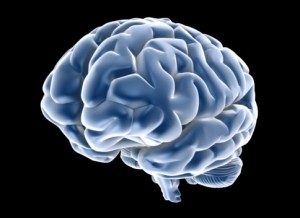Do we have free will? Three questions:
Question 1: What is free will?
It sounds obvious, but upon further inspection, this is a tough question. Can we make choices freely? Well, what is a “choice”, and what is “freely”? Perhaps we should say something like, “a choice is a decision between two possible outcomes.” But what about “freely”? How about, “when we make a choice, it is not compelled by the previous state of events”. That sounds free. That leads to the next question:
Question 2: Is there a logical possibility of free will?
 Why wouldn’t there be, you ask? Think about it, when you make a decision, you have a reasoning process. You think to yourself, “if I choose X, Y will probably happen, and I value Y happening, so I will choose X.”, or vice-versa. It doesn’t matter. If this is true, when you are about to make a decision, if the inputs (reasoning process) were the exact same, would you make the exact same decision?
Why wouldn’t there be, you ask? Think about it, when you make a decision, you have a reasoning process. You think to yourself, “if I choose X, Y will probably happen, and I value Y happening, so I will choose X.”, or vice-versa. It doesn’t matter. If this is true, when you are about to make a decision, if the inputs (reasoning process) were the exact same, would you make the exact same decision?
By virtue of you making a decision, you have necessarily gone through various step to reach your conclusion. If you were to go through those steps again, would you reach the same conclusion? If yes, where is the free will? You just sound like a computer program. Granted, you might be a complex being with all sorts of beliefs and values, but you seem to have a specific pattern of personality, right? If you get the exact, exact same inputs and reasons for a given situation, would you not predictable?
(It should also be mentioned that you don’t even seem to have control over your personality. You had all kind of external stimuli which shaped your behavior and personality that you absolutely did not control [your parents, your school, your country of origin, the culture into which you were born, etc]. How can it be that you did not control these influences, being a fundamental part of your reasoning process, and you still have a truly free will?)
Question 3: What would free will really look like?
By definition, it would seem like for any given situation, you would receive certain inputs, and you could somehow respond differently with the exact same thoughts and beliefs. Does free will just imply randomness? If you could think the same thing, and do something different, what kind of control is that? “You” certainly do not seem like you are in control of the situation. If you were, wouldn’t you necessarily, logically, act in a certain way, given “your” specific will?
Think about it this way: do events not always have causes? If so, what were the causes of those causes? Must you not have caused everything preceding your decision in order to be fully responsible for any given outcome?
Perhaps we are not bound by our personalities? Perhaps intentional capriciousness is the only possible outlet for free will? Then again, why did you choose to be capricious?

I think there’s a really interesting conversation to have about duality at play here. Lots of references to having control over one’s actions, personality, etc…, but that implies that there is a thing separate from and that wants to control those things. How does a discussion of free will look different if we reject mind-body dualism and assume a physicalist accounting of the world?
moi qui la connait bien cette « Pepsy Fauoly &raqmi; , j’apprécie doublement ces magnifiques photos ! Bravo pour le talent et le rendu du bonheur !
Pingback: The placebo effect | one free mind
My hat is off to your astute command over this to-aipbrcvo!